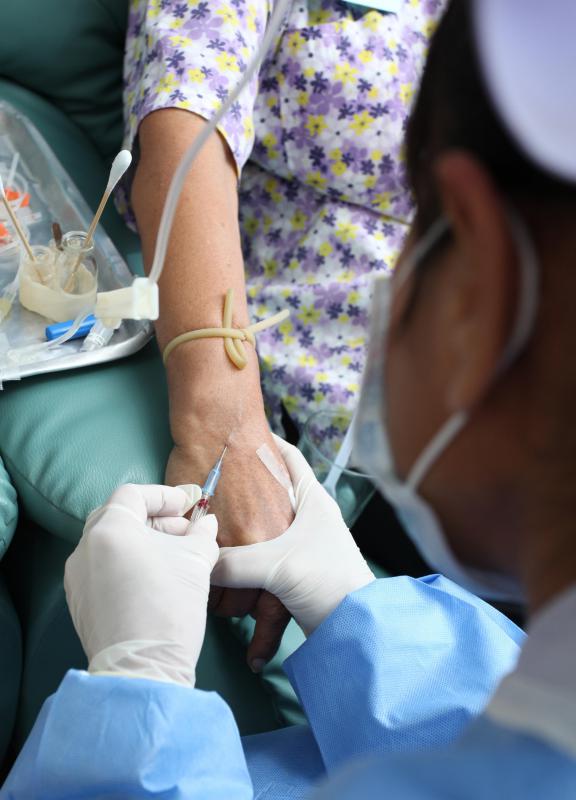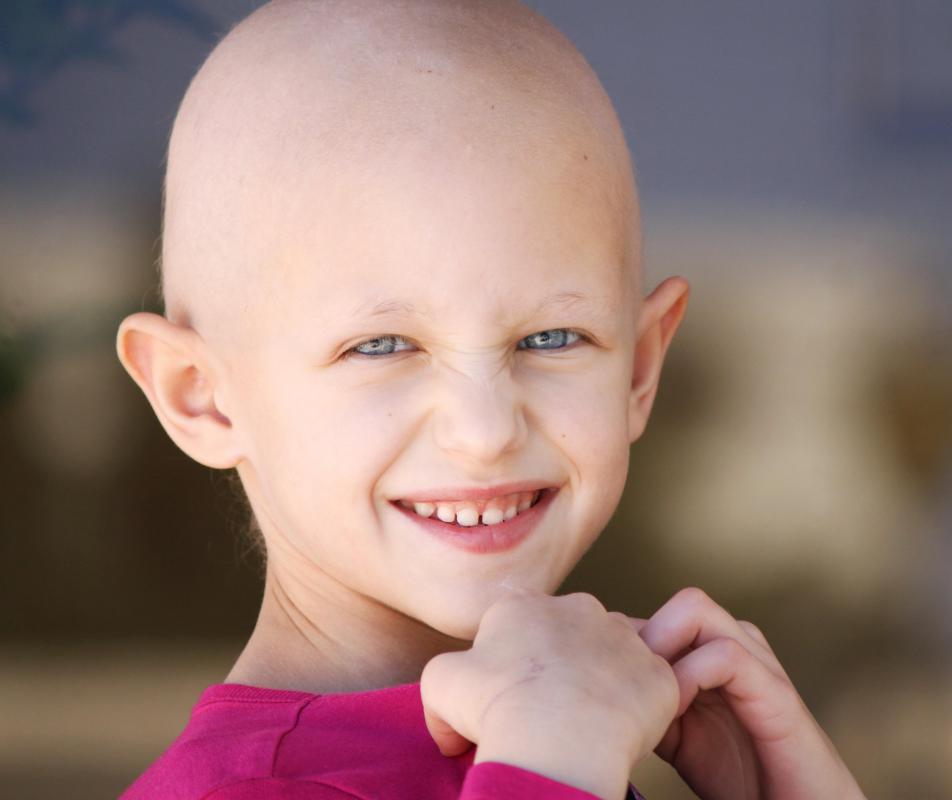At TheHealthBoard, we're committed to delivering accurate, trustworthy information. Our expert-authored content is rigorously fact-checked and sourced from credible authorities. Discover how we uphold the highest standards in providing you with reliable knowledge.
What is an Oncologist?
An oncologist is a doctor who is qualified in the treatment of cancer. He must be fully trained in the various types of cancer and the best treatment for each. He may also specialize in and treat only a specific type of cancer.
An oncologist is trained to know exactly what to look for regarding the symptoms of cancer. She will know which tests must be conducted in order to make an accurate diagnosis. She will then be able to advise the best treatment for each type of cancer.

The oncologist may advise an individual treatment, or there may be a combination of different treatments available to the cancer sufferer. Due to the amount of research undertaken on the causes and treatments of cancer, new information is produced frequently. He must be fully aware of all new research and findings in the field of cancer.
Once an oncology student has completed his training, he must pass certain exams in order to be board certified. These include a written exam and an oral exam, and the work of the oncology student will also be reviewed. An oncologist can choose to specialize in one of the main oncology fields. These are chemotherapy, radiation treatment and surgical oncology. There are also more specific categories of specialization, including the treatment of cancer in children and the treatment of cancer in the female organs.

A surgical oncologist is a doctor who treats cancer through surgical procedures. Training for this position includes a five year surgical residency. Post residency, a three year long fellowship on an oncology program is required. There are only fourteen oncology programs that are approved by the Society of Surgical Oncology.
The training and studying involved in becoming a surgical oncologist is intense. A person in this position must also undertake the latest surgical research in order to give the best treatment advice. During oncology training, combinations of treatments are studied to optimize the chances of reducing or beating cancer. Oncologists from all fields work together in order to give the best patient treatment available. Clinical research, including aggressive treatment alternatives, is also part of the studies undertaken by an oncologist.
AS FEATURED ON:
AS FEATURED ON:















Discussion Comments
@fify: A dermatologist can see there's something wrong. A DNA sample sent to the lab the lab can give the dermatologist the results and therefore he can actually "diagnose" you with cancer.
I have a knot on my left rib. Could that be anything serious?
@anon6052-- First, you need to get your bachelors in medicine. Afterward, there is an exam you take to study oncology. The test is basically an overview of what you learned during your bachelors. So if you did well in bachelors, you'll pass fairly easily. Once you pass, you can enroll in any oncology program at universities. After completing the program, you can start working at oncology departments of hospitals.
If you're planning on specializing in a certain type of oncology however, you need to take classes according to that during the oncology program. So for example, if you want to be a hematologist oncologists who works with cancers of the blood, you will need to take courses according to that during the program.
@fify-- Well, that depends. I'm not an expert on this subject and I don't think there is one right answer but I'll tell you what I know.
It is usually the oncologist that diagnosis cancer, but it may not always be. If a general practitioner is suspecting cancer, the patient will be sent to an oncologist for further testing, biopsy, diagnosis and possible treatment.
But oncology is a multi-field practice. It takes effort of many different doctors so it's not uncommon for an oncologist to work with other doctors for diagnosis and treatment. So another doctor, or a regular surgeon could for example, could take biopsy and then send it to the oncology department for testing. This happens a lot if an unusual lesion is found during an unrelated surgery.
It could also be the oncologist surgeon who does the diagnosis. So it really depends on the circumstances. I hope this answer helps.
But who diagnoses cancer? Is than an oncologist and if so which one?
For example, if I went to the dermatologist with a dubious growth on my skin, can the dermatologist diagnose me with cancer? Or will I be sent to an oncologist?
I'm confused about this, can anyone explain?
How many people does an oncologist usually treat annually?
My dream job is to become a oncologist!
How many years does it take for a person to become and oncologist?
What does it take to become an oncologist for example what classes must you take in college and high school?
What type of college degree would one need to be on the road to becoming a pediatric oncologist?
Post your comments